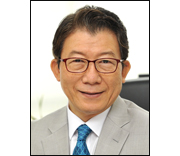-
[December 15, 2015 Korea times] On investor-state dispute (ISD)
- Date : 2016.03.10
- Views : 372
On investor-state dispute (ISD)
 |
By Jeffrey I. Kim
On November 30, the long-delayed Seoul-Beijing tradedeal was finally ratified by the National Assembly. Korea has now become aspecial trading partner with China which has the world's second-largest economywith its more than 1.3 billion consumers. There had long been debates on thepros and cons of the Korea-China FTA among the Korean people. Korea has acomparative advantage in selling industrial products, whereas China has theupper hand in agricultural and fisheries products. In the trade deal, however,Korea can still protect its rice market while China can protect its automobilemarket.
Before reaching the final agreement, there was tough debate between thepolicymakers of the two countries on the terms and conditions of the tradepact. The trade and investment specialists on each side made model-basedmeticulous calculations of the future benefits and costs of their deal.Nevertheless their estimation is subject to wide margins of the expectederrors.
The National Assembly's approval of the FTA does not mean that foreigninvestors are fully protected by the host government. They are subject to manygrievances while operating their businesses in the host country. If their grievancesaccumulate, they may end up filing an Investor-State Dispute (ISD) claimagainst the host government.
ISD settlement (ISDS) is an instrument of public international law that grantsa foreign investor the right to use dispute settlement proceedings against ahost government. If the host government violates the rights granted to theforeign investor under public international law, then the foreign investor maybring the case before an arbitral tribunal. The World Bank often gets involvedas an international arbitrator.
Speaking of ISDS, Korea has had agonizing experiences with debating over theinclusion of the ISD settlement clause in the Korea-US FTA (KORUS FTA). Afterthe FTA was signed by the two governments in April 2007, opposition party membersof each country were against it because they had thought that the deal would dovery little for their own economy. Due to the miscalculation on each part, ittook more than four years for the KORUS FTA to be effective. Still, Koreanshave concerns that ISDS would not work in favor of Korea when a business from adeveloped country files a claim against the Korean government.
These days, international investment flows two ways between newly emergingcountries (NECs) and industrially developed countries. Therefore, inclusion offair and transparent ISD settlement clauses in the FTA treaties is absolutelynecessary for both NECs and developed countries. Korea's overseas investmenthas increased tremendously and its outstanding amount is more than three timesas high as FDI. So, Korean investors may need to strategically use the ISDSinstrument to protect their interests when dealing with a foreign tradingpartner.
In this connection, the Korea-China FTA is worth receiving the world'sattention. In the Seoul-Beijing free trade agreement, a special section forgrievance resolution is added. Article 12.19 of the FTA stipulates that thetrade ministry of each government should designate contact points for resolvinggrievances of foreign investors. These contact points include each country'strade promotion agency, for Korea being KOTRA and the Foreign InvestmentOmbudsman Office.
Korea first adopted the foreign investment ombudsman system in 1999 tosystemically resolve the grievances of foreign investors. The system has beenworking well and has received positive feedback from foreign investors anddiplomatic circles and some countries have benchmarked the Korean ombudsmansystem. Recently, Brazil has shown interest in establishing the same system.
In today's world, trade and finance in one country have an immediate effect onits neighboring countries. If one country increases its investments and itsimports, it will have a positive impact on its partner countries by raisingtheir investments and imports, too. If one country, on the other hand, does theopposite, it will trigger negative reactions. Unfortunately the world is nowsuffering from this symptom.
To cut the vicious reactions of low spending and slower GDP growth worldwide,countries should promote FDI. Consequently, the foreign investment ombudsmansystem is becoming more important. To resolve the grievances of foreigninvestors early on, before becoming an issue for ISDS, would bring benefits toboth the home country and the host country as well.
Jeffrey I. Kim is a foreign investment ombudsman, a presidentiallyappointed troubleshooter for investors and entrepreneurs fromoverseas. He earned a Ph.D. in economics at the University of Chicagoand taught at the University of Colorado,
Boulder, and Sungkyunkwan University.
Link : http://www.koreatimes.co.kr/www/news/opinon/2016/01/197_193166.html










